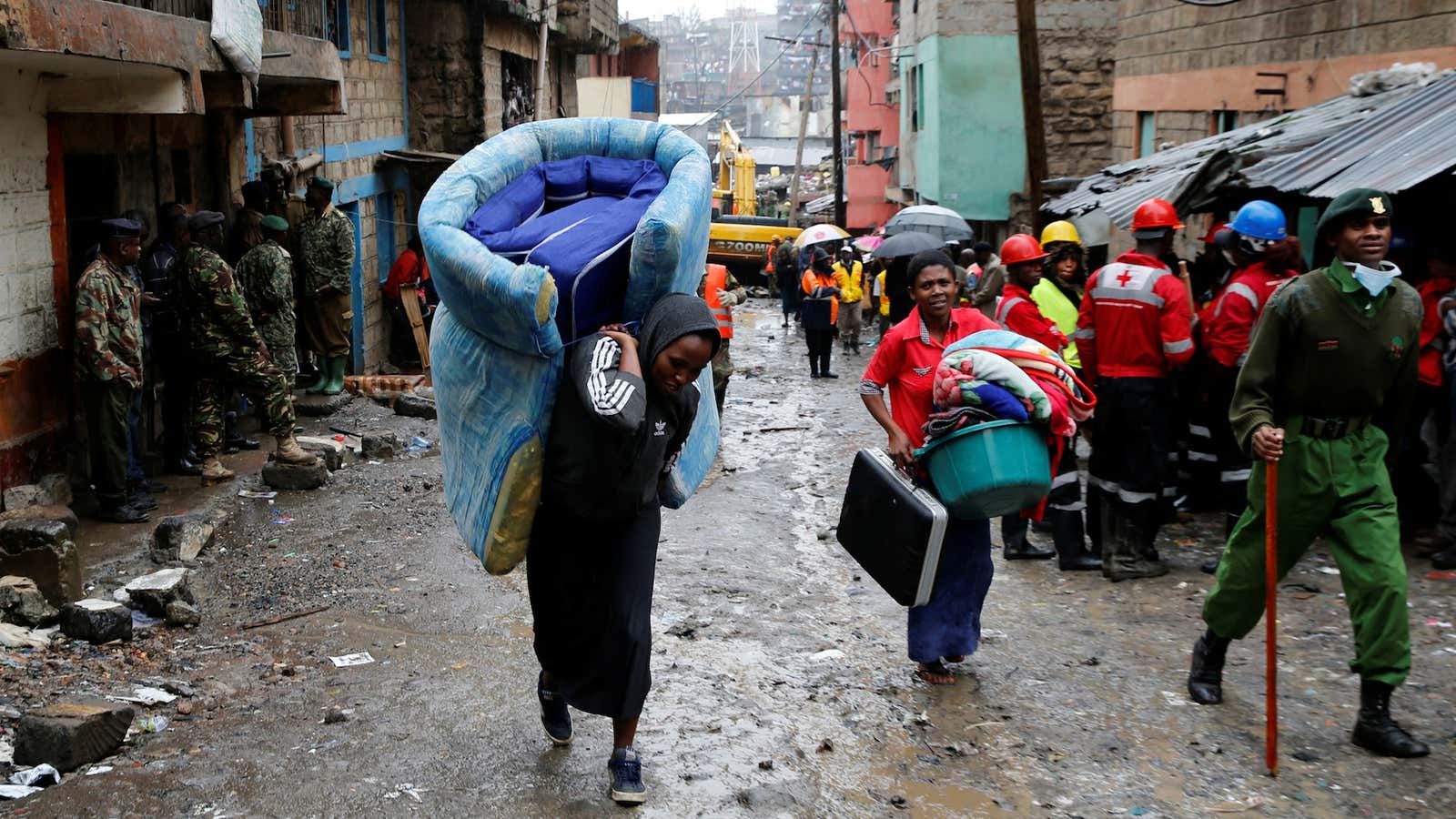Rains pounded the Kenyan capital of Nairobi over the weekend, exposing the city’s sorely lacking infrastructure. A six-story house that should have been demolished years ago collapsed on Friday (April 29th), killing at least 21 residents and injuring 135 people. Rescue efforts that have continued through today, are unlikely to yield any more survivors, according to Kenya Red Cross.
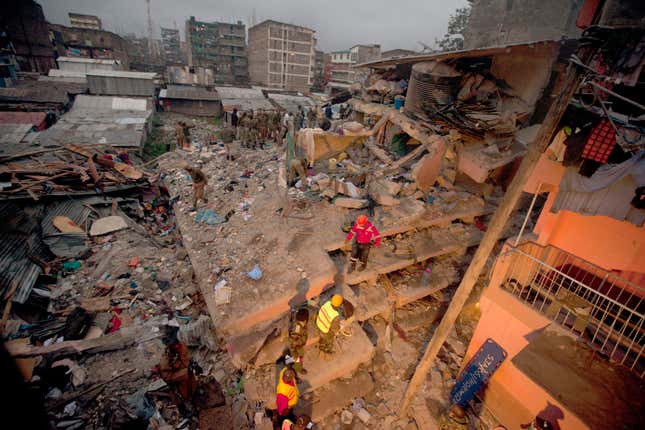
Before that, a wall guarding Kenya’s Department of Defense crumbled, killing four pedestrians. An eight-lane highway once called a “source of national pride” was one of many that flooded because of poor drainage, leaving commuters stranded in the rain overnight on Saturday.
Cars were swept off roads or submerged, while enterprising Nairobians built bridges out of carts, charging residents a small fee for help crossing flooded streets.
The rains, part of Kenya’s twice yearly rainy season, also expose the extent that corruption and negligence affect the daily lives of residents. Nairobi’s governor, Evans Kidero, blamed the building collapse in Hurama, a poorer residential area in northeastern Nairobi on corruption, noting that this isn’t the first time a building has collapsed there.
“Corruption is a big issue. Last year in January when a house collapsed here in Huruma, we arrested the person, [but] people at very high levels intervened so that he is not taken to court,” Kidero told reporters on Sunday (May 1).
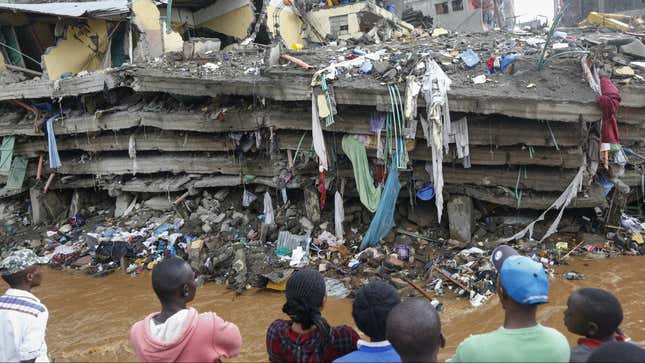
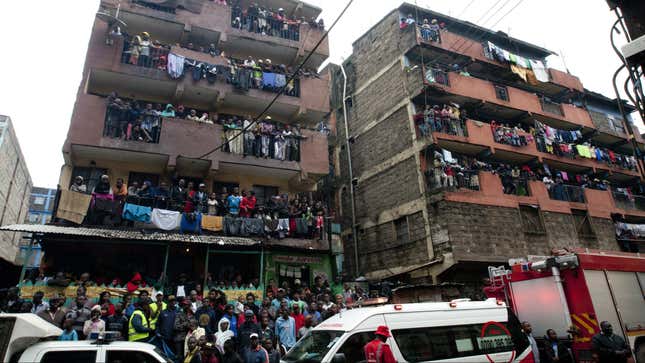
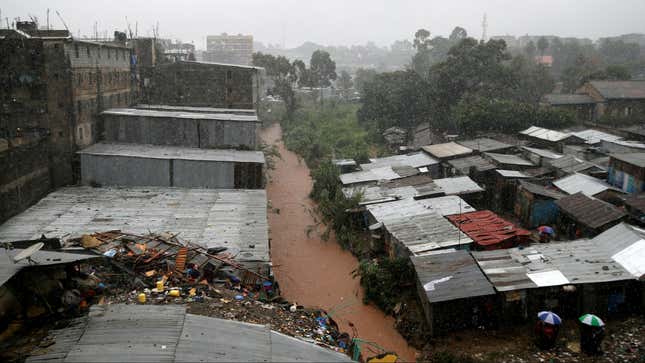
Critics of the government say that real estate developers are able to bribe officials in order to skip building approvals and minimize their costs. An audit done last year by the ministry of land and housing concluded that 52% of over 1,000 housing units inspected did not meet safety standards. Little appears to have been done since then. In January, Kenya’s National Construction Authority said that half of all homes in the capital are not fit for habitation and should be demolished.
Other politicians, some of them interested in the Nairobi gubernatorial seat in the 2017 election, have chimed in. Nairobi senator Mike Mbuvi said today, “All the houses which were to be demolished were questionably spared and the inspection exercise never continued because people were bribed and left their mandate to the dogs.” Simba Arati, a member of parliament representing Nairobi’s Dagoretti North district, said, “All this has happened because of corruption.”
The owner of the building in Hurama has been arrested and the government has vowed to inspect and ensure that all buildings under construction meet safety standards. For now, the government’s advice for citizens—heavy rains are expected to continue through June—is to avoid 15 roads or sections of major thruways and not to clog the city’s drainage system with litter.
